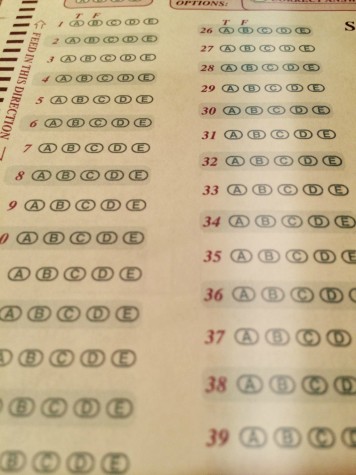What School Should Really Be Teaching Us
Imagine this scenario: you’re talking to a friend. They explain to you how angry they are over getting an A- in their science class. You ask them why they’re complaining, and they respond by telling you that their parents expect straight A’s from them for the semester. This friend of yours can often be manipulative, has sub-par social skills, and couldn’t last a day in the real world.
This made-up scenario is all too real. Students are expected to get often unattainably high grades, and there is no emphasis on personal character or mental health. When did we become a society where a GPA has more weight than being a decent person? More importantly, why is our education system wanting to churn out anxiety-ridden, socially-inept robots who can recite the Pythagorean theorem but can’t last a day on their own?
I hear all the time how lucky I am to go to a school like Edina, where educational achievement is a necessity. But sometimes I wonder if Edina is actually giving students a real education, or is just good at teaching students how to master standardized tests. Nowadays, students aren’t looking at a class for the benefit of learning something new, but rather for a letter grade.
Reflecting on the past few years of school, I can count the material that has actually benefitted me in real life on my fingers. In fact, I feel as if in many courses that are considered to be “high level,” I am robbed of my own voice and opinion in order to fit the mold of the curriculum. In contrast to the times in elementary school when learning new things was fun, learning something new is now just another thing we must memorize for the final exam.
According to the Oxford Dictionary, the word education is defined as an “enlightening experience.” Well, the only thing “enlightening” about the education I’m getting is the sun coming up in the morning after hours of staying up studying.
Furthermore, we have to address the obvious correlation between poor mental health and school. According to Mental Health America’s estimates, twenty percent of teens are clinically depressed. Unfortunately, our education system has no mercy for this. The rigorous curriculum forces students to put personal issues aside so that they can concentrate on schoolwork. As a society, we seem to push this under the rug and use cliché statements like, “life isn’t fair,” or, “deal with it” to justify this problem. However, I don’t believe we have to live in a world where one must sacrifice their mental health for the sake of a good GPA.

Plagiarism is another problem that we face in schools today. A CNN poll revealed that seventy-five percent of high schoolers engage in cheating, whether it be from the Internet, looking up test answers, or copying from other students. Administrators like to point the blame directly and solely to students, which is justified in part. But one day, administrators are going to need to realize that students cheat for a reason. If our schools didn’t put out such unrealistic demands from students, we wouldn’t have such an issue.
At some point, we must ask ourselves how this is going to play out in the future. What is the price we will pay of putting too much weight on a letter grade rather than the quality of material that we are being taught?
Ultimately, we are going to have to make big changes. Our world is moving forward in so many ways, but it is our education system that is being left behind. If we don’t make changes to our education system, we are going to have a generation of anxious kids who know only how to memorize. We need to emphasize character building in our schools and take weight off of the importance of a letter grade. We also need to start learning information that is actually valuable. For instance: how to pay taxes, how to buy a house, and how to pay off your college loans. We need to think of education as less of a death sentence and more as an opportunity to grow.

Drew Davis decided that it would be pathetic to recycle his sophomore year bio a third time, so he wrote a new one. Drew is thrilled to be online editor...








Lizzie Madden • Mar 7, 2014 at 8:01 pm
Hmmm. I get your points. And your essay is really well written. Your voice is loud and clear, and I admire your willingness to share this perspective. I actually think you may be inadvertently,demonstrating some things you’ve learned from your Edina education.
I agree that school is stressful and parents and teachers and administrators and legislators all want kids to succeed.
A grade is just one indicator of that success. Remember that, and try to take your classes in from a different angle. Find a way to diminish the stress through creative time management, sports, arts, friends, sleep.
Think about some of the “school dissidents” you’ve certainly read about (Thomas Edison types, Einstein), or self taught (George Washington Carver, Bill Gates, Steve Jobs), or singular personalities that left great stories (Beatrix Potter, Harriet Tubman, Susan B. Anthony).
Maybe you’ll join the list.
If Edina turning out robots who can’t live a day on their own, you certainly seem to have escaped that fate. Here’s to hoping you have more company than you know.